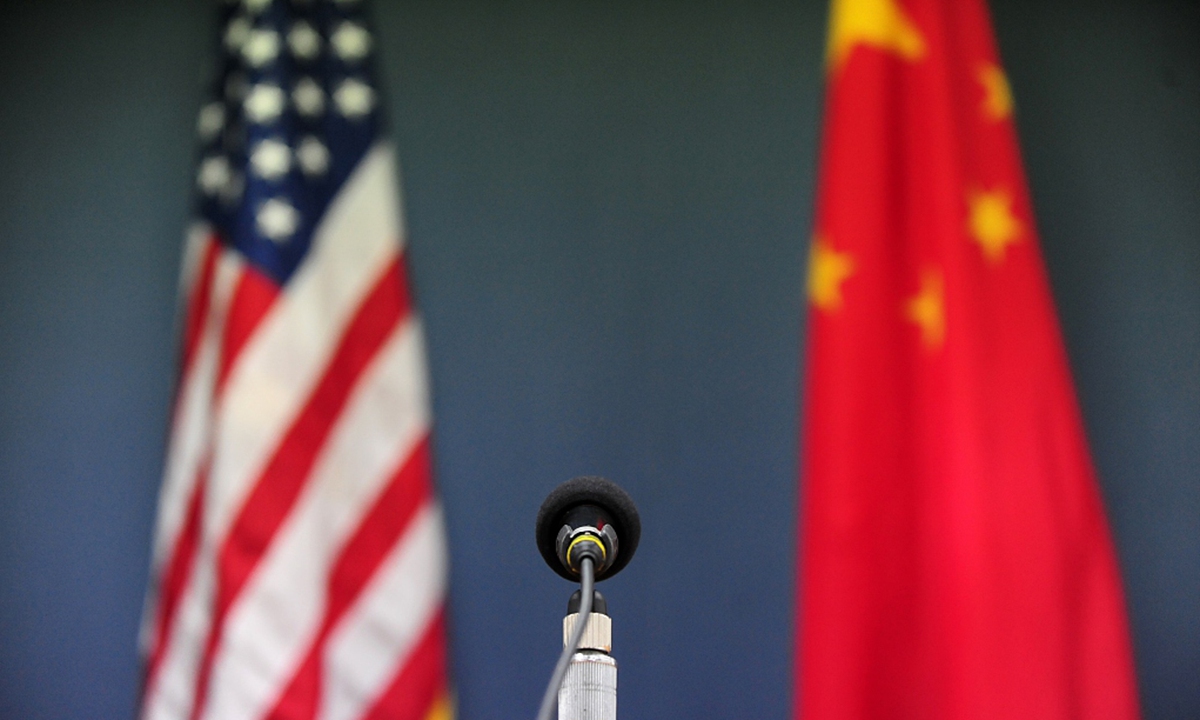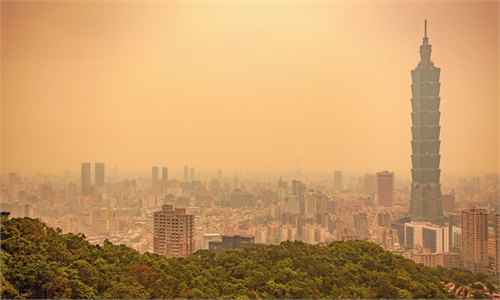China may restrict rare-earth imports, issue financial blockades over US arms sale to Taiwan: analysts

China US Photo: VCG
China announced to sanction firms including Lockheed Martin, Boeing Defense, Raytheon as well as individuals and entities that are involved in arms sales to the island of Taiwan. The latest response with unprecedented scale and strength against firms, individuals and entities involved in the arms sale came after an event in China to commemorate a war against US aggression in Korea 70 years ago. It sends a clear signal that China's decision-making won't be disturbed by the US and any acts that have undermined China's sovereignty, security and development interests are bound to face serious consequences, analysts said.
Chinese Foreign Ministry spokesperson Zhao Lijian told a routine press conference on Monday that the sanctions were in response to recently approved US arms sales to Taiwan on October 21, which could have a total value of $1.81 billion.
The spokesperson reiterated that the US weapons sales to the island of Taiwan have severely violated the one-China principle and the provisions of the three China-US joint communiqués and seriously undermined China's sovereignty and security interests. China firmly opposes this and strongly condemns it.
China urges the US to cease arms sales to Taiwan and terminate any military connections with the island, he noted, adding that "China will continue to take necessary measures to safeguard the country's sovereignty and security interests."
Zhao did not outline the details of the sanctions at the Monday press conference. However, analysts reached by the Global Times on Monday floated theories that China's retaliations against such foul acts by the US could range from restrictions on rare earth imports to obstructing entry into the civilian market entry from the firms, individuals and entities involved.
China has many options at hand to give them a hard time, said Li Haidong, a professor at the Institute of International Relations of the China Foreign Affairs University.
A restriction on the rare earth supply chain is apparently one of them, as it could effectively hurt the firms' raw materials processing stage in their defense business sector. And limits on their civilian market entry in China could hurt them even more, as no sensible company could afford to lose the most vibrant market in the world, Li elaborated.
For instance, many of Lockheed Martin's key products, including F-35 fighter jets and Patriot missiles, rely on components made with rare earths, analysts said. China is the world's largest rare-earth exporter, and the US imports about 80 percent of the rare earth it needs from China, reports said.
Song Zhongping, a military expert and TV commentator, told the Global Times on Monday that Boeing might be affected the most by the new sanctions, as the broader Boeing company has larger scale civilian and commercial business connection in China than others on the list.
The individuals and entities on the sanction list are very likely to include US politicians such as Senator Marco Rubio who reportedly applauded the White House's approval, Song said.
On top of conventional sanctions against firms - such as simply ending their trade contracts - China could target high-tier employees more precisely by freezing their bank accounts in China, or restricting their travel to China as well as their business activities including exchanges with smaller firms in downstream supply chains in China, Wang Ya'nan, a defense industry expert and chief editor of Aerospace Knowledge, told the Global Times on Monday.
But Wang said he believed that the civilian business in China of these firms, especially Boeing, would be barely affected by the sanctions.
"Boeing applies very strict divisions in its defense and civilian businesses, and Beijing will only target the offensive defense sector of the company rationally," the expert said.
Boeing Defense is one of the broader company's three business units, and the other two are commercial and space units, according to its website.
Lockheed Martin does conduct some business in China in the new energy, civilian aviation and space industries, though not on a large scale, according to Weihutang, a program on military affairs affiliated with China Central Television.
According to CNN, the US State Department has approved sales to the Taipei Economic and Cultural Representative Office in the US of 135 Standoff Land Attack Missile Expanded Response (SLAM-ER) missiles and related equipment estimated at more than $1 billion, 11 High Mobility Artillery Rocket Systems M142 Launchers and related equipment for an estimated $436.1 million and six MS-110 Recce Pods and related equipment for an estimated $367.2 million.
The US may have become used to wantonly imposing sanctions in the international community, but must now prepare for sanctions itself if it continues to challenge China's bottom line on the Taiwan question, analysts said.


